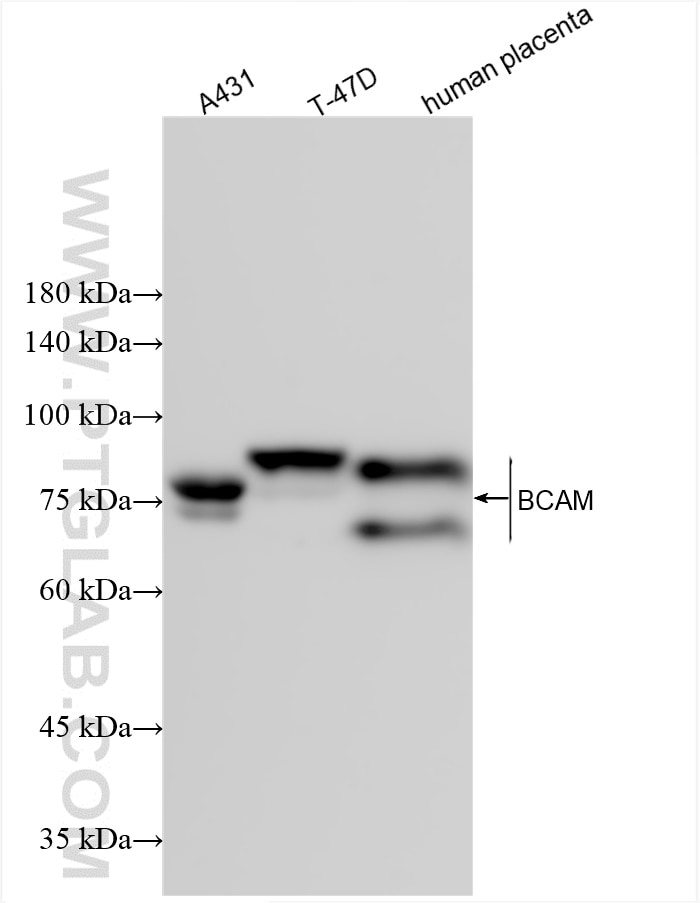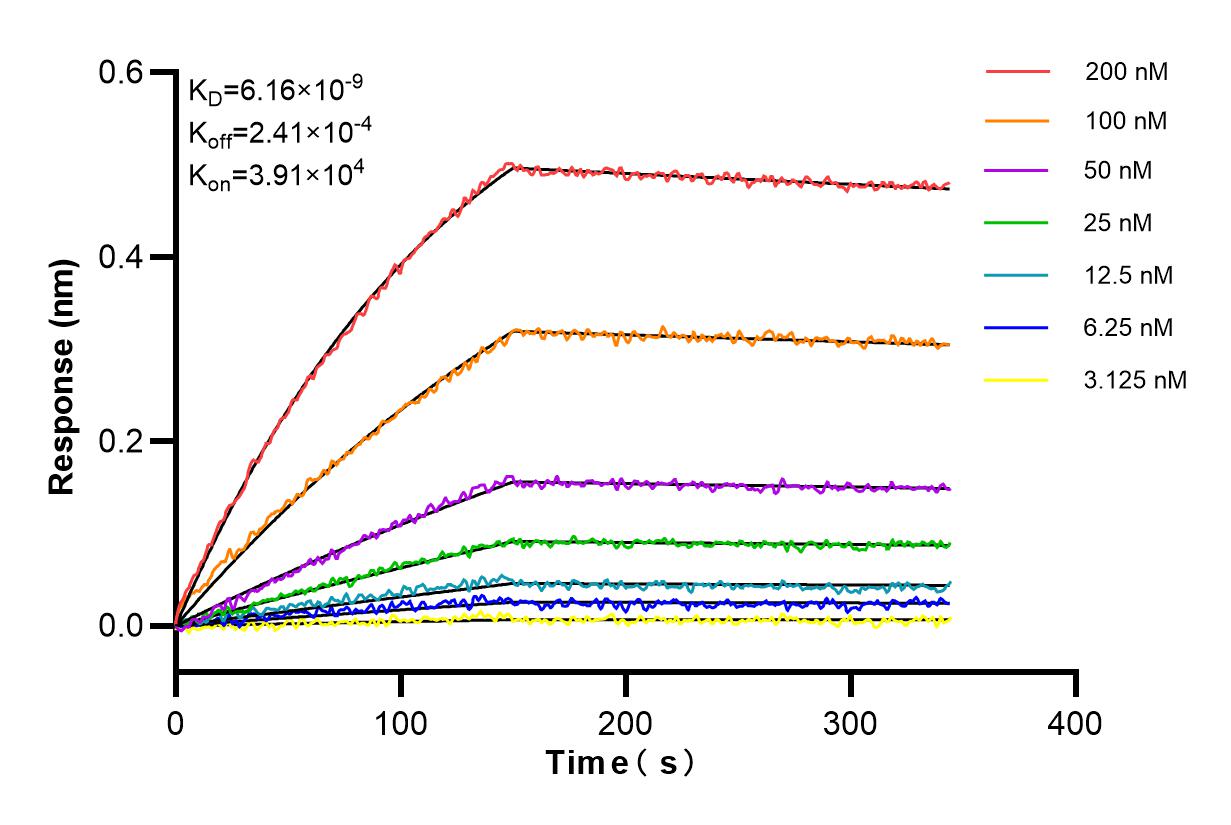Product Information
84038-3-PBS targets BCAM in WB, Indirect ELISA applications and shows reactivity with human samples.
| Tested Reactivity | human |
| Host / Isotype | Rabbit / IgG |
| Class | Recombinant |
| Type | Antibody |
| Immunogen | BCAM fusion protein Ag28181 Predict reactive species |
| Full Name | basal cell adhesion molecule (Lutheran blood group) |
| Calculated Molecular Weight | 67 kDa |
| Observed Molecular Weight | 67 kDa, 78-85 kDa |
| GenBank Accession Number | BC050450 |
| Gene Symbol | BCAM |
| Gene ID (NCBI) | 4059 |
| Conjugate | Unconjugated |
| Form | Liquid |
| Purification Method | Protein A purfication |
| UNIPROT ID | P50895 |
| Storage Buffer | PBS only, pH 7.3. |
| Storage Conditions | Store at -80°C. |
Background Information
Basal cell adhesion molecule (Lu/BCAM) is a membrane-bound glycoprotein of the immunoglobulin superfamily (IgSF), functioning as a receptor for the extracellular matrix protein, laminin. BCAM (Lutheran/basal cell-adhesion molecule, a glycoprotein) belongs to the immunoglobulin superfamily which contains both Lu blood group and BCAM tumor-associated antigens. Proteomics analysis suggests that BCAM might be a potential biomarker for pancreatic cancer (PMID: 19199705). BCAM, involved in cell adhesion and migration, can also promote tumor metastasis and has been elucidated to play a functional role in the metastasis of thyroid cancer and gastric cancer (PMID: 10728810, 35941663). De-glycosylated BCAM has a preidicted molecular weight of 67 kDa. Two BCAM glycoprotein (gp) isoforms are present on human RBCs, Lu (85 kDa) and Lu(v13) (78 kDa); they result from the alternative splicing of intron 13 and differ by the lengths of their cytoplasmic domains (PMID: 23160466).





